
Rockwell’s Micro830 and 850 have convenient USB programming ports built in, and an optional USB programming port can be added to Micro810 and 820.
In today’s article I’ll show you how to setup communications to those USB programming ports, as well as how to avoid some common issues.
Preface: Before plugging your Micro800 into your PC via USB, be sure you have installed a recent version of RSLinx Classic. It can be downloaded and installed separately, or along with Connected Components Workbench:
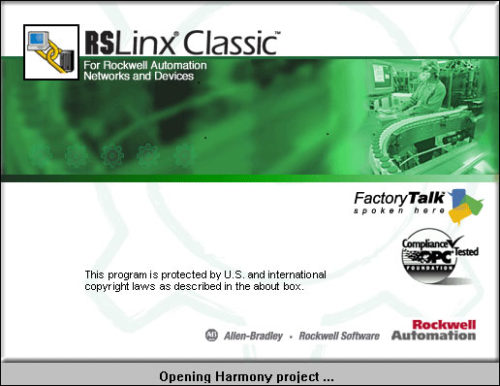
Step 1) Start by using a standard USB A-B cable to plug your Micro800 into your PC:
Step 2) Once you plug your Micro800 in to your PC via USB, on the bottom right of your Windows desktop you should see a notice that the USB CIP driver is being installed.
After a moment the message should update to say the driver has been installed successfully:
Note: If the driver says it did not install successfully, the most likely reason is the USB CIP driver that came with RSLinx is out of date, and the best solution is typically to install the newest version of RSLinx Classic that is supported by your Windows OS.
Step 3) Next, open RSLinx Classic and you should see two new drivers have been added automatically: The AB_VBP driver and the USB driver:
Step 4) Now expand the USB driver and you should see your Micro800 appear within ten seconds:
Step 5) If your Micro800 does not show up under either the AB_VBP or USB driver, unplug it and wait ten seconds.
Then, manually delete both the AB_VBP and USB drivers. Once deleted, plug your Micro800 back into your PC (sometimes if those drivers are added for other devices RSLinx won’t find the Micro800.)
Step 6) If your Micro800 shows up with a yellow question mark as shown below, it likely has a firmware version that is newer than what your installed copy of RSLinx Classic recognizes:
Step 7) To update RSLinx, upload an updated EDS file from the Micro800 by right clicking on the Micro800 and selecting “Upload EDS file from Device:”
Step 8) If prompted, select Yes to allow the EDS Wizard to run:
Step 9) Run completely through the EDS Wizard by selecting “Next” several times, and then selecting “Finish” at the end:
NOTE: If you would like to learn more about installing EDS files, see our detailed article on the subject: How to install EDS files.
Step 10) Now you should see your Micro800 appear in the RSLinx RSWho window within ten seconds of selecting the driver as long as Autobrowse is checked:
Question) Did you Find this article helpful? If so, please share it with co-workers and colleagues! You can also help keep our site online with regular updates by pledging $1 a month at TheAutomationBlog.com/join
And to learn everything you need to know to setup and start programming the Micro800 line of programmable controllers, check out my Micro800 course at Nano Basics Course
I hope you found this article helpful. If you have any questions please feel free to post them at TheAutomationBlog.com/join which I visit each weekday to reply to reader’s questions.
Until next time, Peace ✌️
If you enjoyed this content, please give it a Like, and consider Sharing a link to it as that is the best way for us to grow our audience, which in turn allows us to produce more content 🙂
Shawn M Tierney
Technology Enthusiast & Content Creator
Support our work and gain access to hundreds members only articles and videos by becoming a member at The Automation Blog or on YouTube. You’ll also find all of my affordable PLC, HMI, and SCADA courses at TheAutomationSchool.com.
- Digital Twin Discussion with Arthur Alter of Smart Spatial (01/15/26) - January 15, 2026
- PRONETIQS: Measure, Monitor, and Maintain (P257) - January 14, 2026
- FactoryTalk Design Workbench First Look, CCW Comparison - December 19, 2025

Discover more from The Automation Blog
Subscribe to get the latest posts sent to your email.


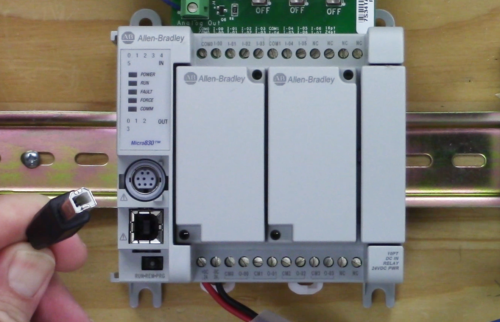

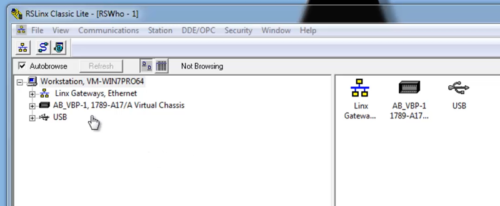
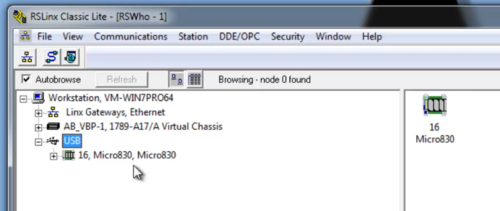
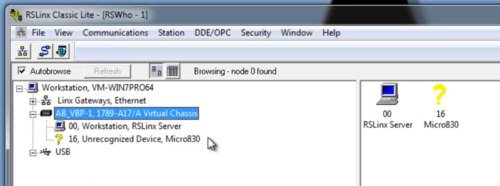
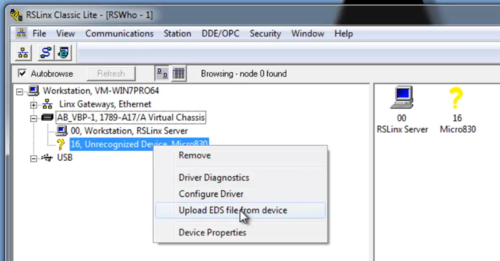
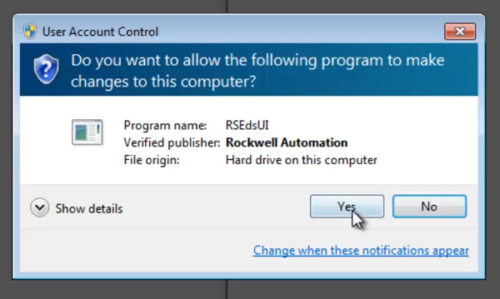
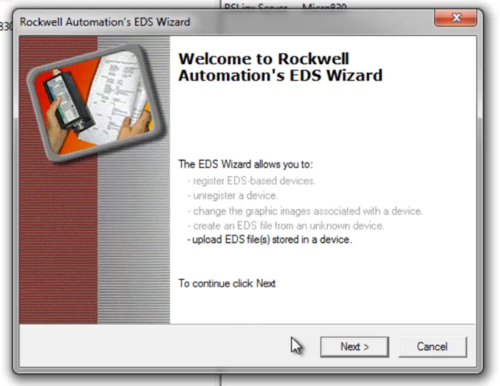
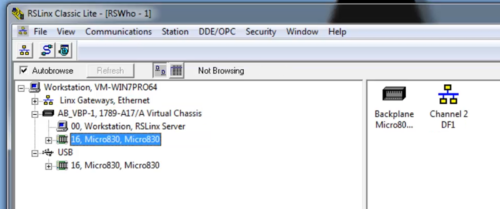

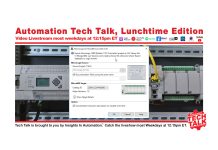

Once again you bailed my out Shawn! Had a Micro 810 that I could not get online with. Followed these steps and got in.
Awesome! Thanks for letting me know David,
Have a great night,
Shawn
Hi Shawn,
Thanks for this getting-started guide for micro 830 plc. I have a quick question on 2080-LC30-24QWB. I have bought this series of plc brand new from a well-known vendor but I noticed that the output terminals are not delivering voltages to the the terminals. It would normally energise on the chassis and on the software but would not deliver voltage to the terminals. Your help would be highly appreciated.
Good morning Mac,
Interesting – I’m assuming you wired it exactly as the book shows?
Shawn
Good morning,
Last time I checked, the USB port on A-B PLCs could only be used by FT/RSLinx, i.e. used for programming.
I’d look into RFID scanners with Serial or Ethernet support.
Shawn
Hi:
It is possible read data from a usb rfid scanner into a memory register of a Micro 800 series plc??
Thank you for the great work Shawn! Rgds, Alex
Thank you Alex!
Shawn
[sc name="stsigcom" ][/sc]